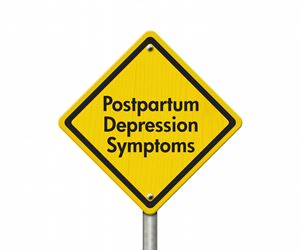All Search Results
-
Are our kids influenced by the bad behavior of others?
There’s a question that’s been rolling around in my head the last couple of weeks. You know the kind- one of those nagging thoughts you try to put out of your mind but it keeps coming back without any answer on the horizon. If I’m being totally honest, though, it hasn’t only been the last couple of weeks. I’ve been struggling with some version of this question since my oldest started kindergarten, when she emerged from the cocoon of preschool into the big world of elementary school.
-
“You have cancer.”
“You have cancer” are three words you never want to hear in your life, especially if you’re only twelve years old. That’s how old I was when I was diagnosed with Osteosarcoma, a rare form of bone cancer and it flipped my life upside down. My worries were no longer about normal teenager things like what clothes I was wearing but instead, what new side effect was going to hit me after each chemo treatment. Having to quickly grow up and fight for my life was something I would’ve never anticipated as a child, but no one ever anticipates getting cancer.
-
How our multi-disciplinary Epilepsy Surgery Team can help kids with seizures
Epilepsy is the 4th most common neurological disease in the nation. In fact, 1 in 26 people will be diagnosed with epilepsy at some point in their lifetime. That’s why November is Epilepsy Awareness Month. It is a chance to teach others what a seizure is, and is not.
-
What every new parent needs to know about postpartum depression
 Having a baby can be one of the happiest times of one’s life, but it’s not unusual for a mom to also experience some not-so-good feelings during this time. Approximately 80% of moms will experience “baby blues,” a mild state of emotional ups and downs that is of short duration and resolves on its own.
Having a baby can be one of the happiest times of one’s life, but it’s not unusual for a mom to also experience some not-so-good feelings during this time. Approximately 80% of moms will experience “baby blues,” a mild state of emotional ups and downs that is of short duration and resolves on its own. -
The Lost Art of Play
As a parent, you want the best for your child, but sometimes it is hard to know what is best when it comes to balancing scheduled activities and play time. While activities such as little league and music groups can provide children with structure, discipline, and increasing independence, over-scheduling can leave kids feeling anxious and pressured to constantly perform. Free play is not only a time when children can relax and have fun but it is vital to a child’s growth and development. In the hustle and bustle of life for today’s children, the art of play is seemingly lost.
-
How to prevent and care for diaper rash
Before we discuss what you can do to prevent this from occurring, it’s important to know what causes it in the first place.
-
Learning disabilities: what are they and what can we do about them?
The term “learning disability” is thrown around pretty loosely these days, yet it’s hard for most of us to come up with an accurate definition of what is actually meant by those words. It’s important for parents to have some idea, though, of what learning disabilities are and what can be done about them. This knowledge will equip you to recognize a problem and get the appropriate help in a timely manner if your child does suffer from a learning disability.
-
Survey: Parents should be allowed to be present during trauma care
 Orlando, Fla - When a seriously injured child arrives at the trauma center at Orlando Health Arnold Palmer Hospital for Children, the patient's parents are ushered into the trauma room alongside the medical team. The policy to allow parents to be present during care is not the norm among pediatric trauma centers, but a new national survey by Orlando Health shows that the vast majority of people think it should be. The survey found 90 percent agree that parents should be able to stay with their child during treatment for a life-threatening injury or condition.
Orlando, Fla - When a seriously injured child arrives at the trauma center at Orlando Health Arnold Palmer Hospital for Children, the patient's parents are ushered into the trauma room alongside the medical team. The policy to allow parents to be present during care is not the norm among pediatric trauma centers, but a new national survey by Orlando Health shows that the vast majority of people think it should be. The survey found 90 percent agree that parents should be able to stay with their child during treatment for a life-threatening injury or condition. -
Important considerations for the "same room, separate bed" infant sleep recommendations
You may have heard of a recent change to infant sleep guidelines which advocate that parents sleep in the same room but not in the same bed as their baby.
-
Should your teen watch 13 Reasons Why?
If you have a teen or pre-teen in your house, you may have heard about the popular Netflix series generating a lot of buzz lately called 13 Reasons Why. It’s a show for and about teens adapted from a popular young adult novel of the same name, but it’s the controversial subject matter that has everyone from psychiatrists to school administrators ringing alarm bells.






